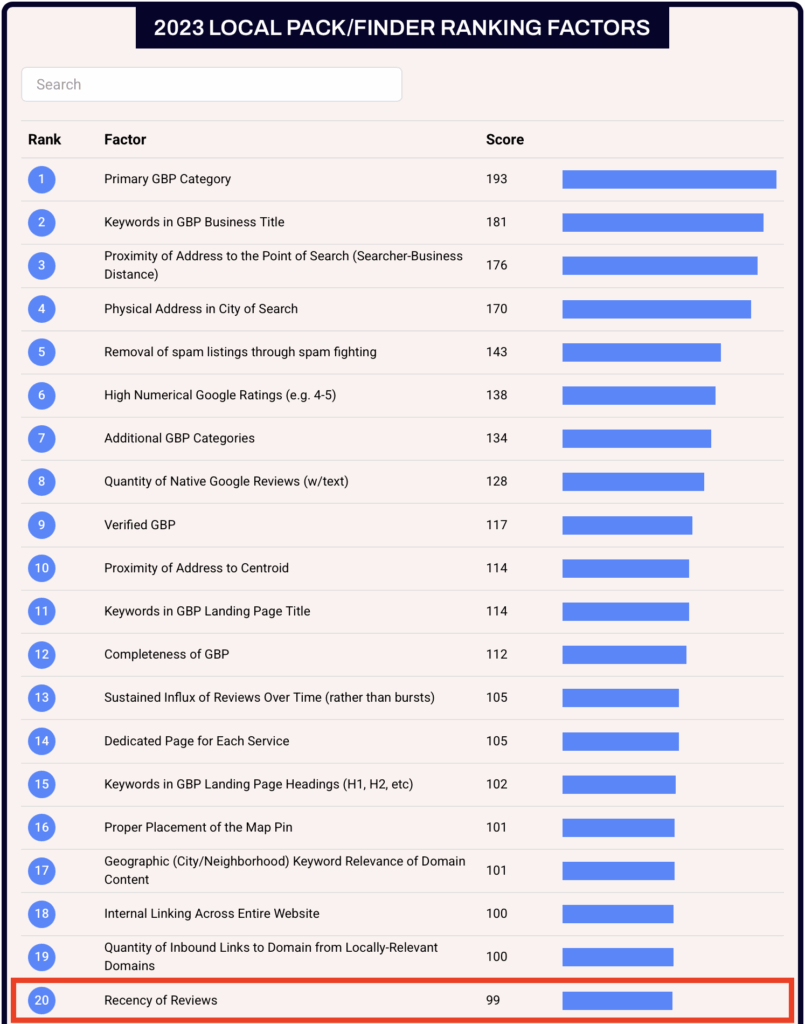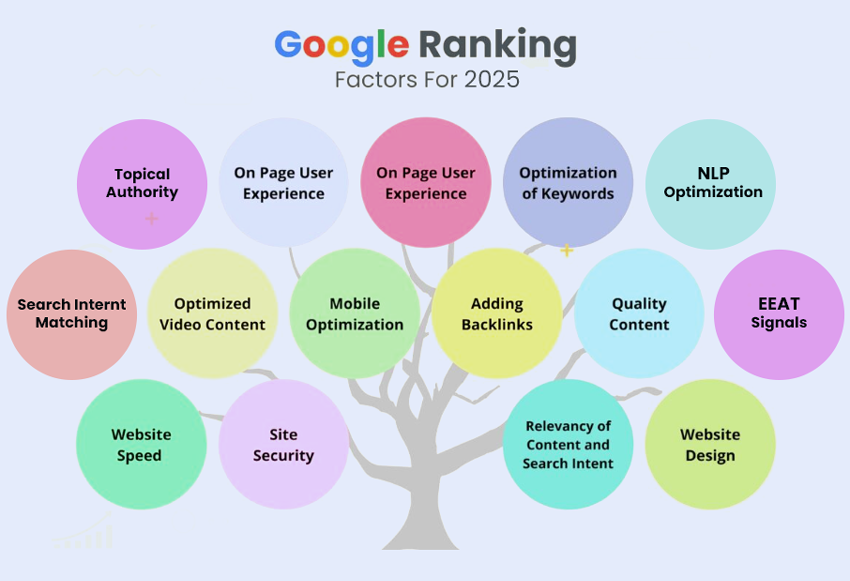If you want your website to stand out and attract more visitors, understanding ranking factors is key. These are the elements search engines look at when deciding which pages to show first.
Knowing how these factors work gives you the power to improve your site’s visibility and reach the right audience. You’ll discover the most important ranking factors and simple ways to use them to your advantage. Ready to boost your online presence?
Let’s dive in!
Key Seo Ranking Factors
Search engines use many factors to decide website rankings. These factors help them show the best results to users. Understanding key SEO ranking factors helps improve your site’s visibility. Focus on what search engines value most for better performance.
On-page Elements
On-page elements are parts of your website you control. They include titles, headings, and content quality. Use clear and relevant keywords in your text. Optimize meta descriptions to summarize page content well. Proper use of images and alt text also matters. Good on-page SEO makes your site easy to read.
Off-page Signals
Off-page signals come from outside your website. The most important is backlinks from trusted sites. These links act like votes for your content’s quality. Social media shares and mentions can boost trust too. Search engines see off-page signals as proof of authority. Strong off-page SEO increases your site’s credibility.
Technical Seo
Technical SEO focuses on your website’s backend. It ensures fast loading times and mobile-friendliness. A secure connection with HTTPS improves rankings. Proper site structure helps search engines crawl pages easily. Fixing broken links and errors keeps your site healthy. Technical SEO supports all other ranking efforts.
Optimizing Content For Search
Optimizing content for search helps websites rank higher on search engines. It improves visibility and drives more visitors. Good content meets both user needs and search engine rules.
Focus on clear, relevant, and useful information. Search engines look for content that answers questions well. Optimized content builds trust and keeps readers engaged.
Keyword Research Strategies
Keyword research finds the words people type in search engines. Use tools to discover popular and relevant keywords. Choose keywords with good search volume but low competition.
Include keywords naturally in titles, headings, and body text. Avoid keyword stuffing, which can hurt rankings. Think about user intent to match keywords with content.
Creating Valuable Content
Valuable content solves problems or answers questions clearly. Write in a simple, direct way that readers understand quickly. Use examples, lists, and short paragraphs to improve readability.
Focus on unique insights or useful tips. Avoid copying from other sites. Good content encourages visitors to stay longer and share your page.
Content Freshness
Search engines prefer updated and current content. Regularly review and refresh old posts with new facts or trends. Add new sections or update statistics to keep content relevant.
Fresh content signals your site is active and trustworthy. This can improve your rankings and attract returning visitors. Keep content timely to stay ahead in search results.
Improving Site Performance
Improving site performance is key to better search rankings and user satisfaction. Fast, smooth websites keep visitors longer. They also reduce bounce rates and increase conversions. Focus on core areas to boost performance effectively.
Page Speed Enhancements
Page speed is a major ranking factor. Fast loading pages improve user experience and SEO scores. Compress images to reduce file size without losing quality. Use browser caching to store files locally for repeat visitors. Minimize code by removing unnecessary spaces and comments. Choose reliable hosting that offers quick server response times.
Mobile Optimization
Mobile-friendly sites rank higher on search engines. Ensure your site design adapts to all screen sizes. Use responsive design techniques for smooth navigation on phones and tablets. Avoid large files that slow down mobile loading. Test your site on various devices regularly. Google favors sites that work well on mobile.
User Experience
User experience affects how search engines rank your site. Easy navigation helps visitors find information quickly. Clear calls to action guide users through your pages. Avoid pop-ups that interrupt browsing. Use readable fonts and proper contrast for text. A pleasant experience keeps users engaged and encourages return visits.

Credit: www.walshandpartners.co.uk
Building Quality Backlinks
Building quality backlinks plays a vital role in boosting your website’s search engine ranking. Search engines see backlinks as votes of trust. The more reliable links you have, the higher your site appears in results. Quality matters more than quantity. A few strong backlinks beat many weak ones. Focus on gaining links from sites related to your niche. This helps search engines understand your content better.
Effective Link Building Techniques
Start by creating great content that others want to share. Write articles, guides, or resources that provide real value. Reach out to bloggers and websites in your field. Offer to contribute guest posts or collaborate on content. Use social media to spread your links naturally. Participate in forums and communities without spamming. Build relationships with influencers and industry leaders. These tactics increase your chances of earning quality backlinks.
Avoiding Toxic Links
Toxic links can harm your site’s ranking. They often come from low-quality or spammy websites. Avoid buying links or joining link farms. Check your backlink profile regularly with tools. Remove or disavow harmful links quickly. Focus on links from sites with good reputation and authority. Keep your backlink profile clean to maintain trust with search engines. Protect your site’s ranking by staying cautious about backlinks.
Leveraging Technical Seo
Technical SEO improves how search engines read and rank your website. It helps your site perform better and appear higher in search results. Focusing on technical SEO makes your site easier to find and use.
Optimizing Site Architecture
Good site architecture helps search engines find all your pages. It organizes content so users navigate easily. Clear menus and internal links improve user experience. A logical structure spreads page authority across your site.
Fixing Crawl Errors
Crawl errors block search engines from accessing your pages. Broken links and missing pages cause these errors. Fixing them ensures search engines index your site fully. Use tools like Google Search Console to spot errors fast.
Structured Data Implementation
Structured data adds extra information to your site’s code. It helps search engines understand your content better. Rich snippets from structured data can improve click rates. Use schemas for products, reviews, events, and more.

Credit: whitespark.ca
Tracking And Measuring Seo Success
Tracking and measuring SEO success helps you see if your efforts work. It shows which strategies bring visitors and which need change. This process guides your next steps and improves your website’s performance over time.
Without clear tracking, you cannot know what drives traffic or leads. Measuring SEO success reveals your strengths and weak points. It helps focus on what matters most for growth.
Key Seo Metrics
Traffic is one of the main metrics to watch. More visitors mean better visibility and interest. Pay attention to organic traffic from search engines.
Keyword rankings show how your pages rank on search results. Higher rankings bring more clicks and exposure. Track your target keywords regularly.
Bounce rate tells you if visitors stay or leave quickly. A high bounce rate means visitors don’t find what they want. Work to improve page content and user experience.
Conversion rate measures how many visitors take action. Actions can be purchases, sign-ups, or contact form submissions. This metric shows the real value of your SEO efforts.
Using Analytics Tools
Analytics tools collect data and display it clearly. Google Analytics is a popular free tool for tracking website traffic. It helps analyze visitor behavior and sources.
Google Search Console provides insights on keyword performance and site health. It alerts you to errors and indexing issues. Use it to fix problems and improve rankings.
Other tools like SEMrush and Ahrefs offer keyword tracking and competitor analysis. These tools help find new keyword ideas and monitor your SEO progress.
Set up goals and reports in your analytics tools. Check these reports often to stay updated on your SEO success. Adjust your strategies based on data, not guesses.
Common Seo Mistakes To Avoid
Many websites struggle with SEO because of common mistakes. These errors can harm rankings and reduce traffic. Avoiding these pitfalls helps improve your site’s performance. Focus on key areas to keep your SEO strong and effective.
Keyword Stuffing
Using too many keywords makes content hard to read. Search engines may see this as spam. Write naturally and use keywords wisely. One or two keywords per sentence is enough. Quality content wins over keyword overload every time.
Ignoring Mobile Users
Most people browse on phones today. Sites that don’t work well on mobiles lose visitors. A mobile-friendly design improves user experience. Responsive layouts adjust to any screen size. Mobile optimization boosts your rankings and keeps visitors happy.
Neglecting Site Security
Secure sites build trust with users and search engines. Not using HTTPS can lower rankings. Protect your site with SSL certificates. Secure sites stop hackers and keep data safe. Security is a must for good SEO and user confidence.

Credit: rocketcrawler.com
Frequently Asked Questions
What Are The Key Seo Ranking Factors In 2024?
Key SEO ranking factors include high-quality content, mobile-friendliness, fast page speed, backlinks, and user experience. Search engines prioritize relevance and authority to rank websites effectively.
How Does Page Speed Affect Search Rankings?
Page speed impacts user experience and search rankings. Faster-loading pages reduce bounce rates and improve engagement, which positively influences search engine rankings.
Why Is Mobile Optimization Important For Ranking?
Mobile optimization ensures your site works well on all devices. Google uses mobile-first indexing, so mobile-friendly sites rank higher in search results.
How Do Backlinks Influence Website Ranking?
Backlinks from reputable sites boost your site’s authority. Quality backlinks signal trustworthiness to search engines, improving your ranking potential.
Conclusion
Ranking factors shape how websites appear in search results. Quality content and good user experience matter most. Fast loading speeds keep visitors happy and reduce bounce rates. Keywords help search engines understand your page topic. Links from trusted sites boost your site’s credibility.
Regular updates show your site stays relevant. Focus on these basics to improve your rankings. Small efforts can lead to steady growth. Keep learning and adjusting your SEO approach. Success takes time, but the results are worth it.

